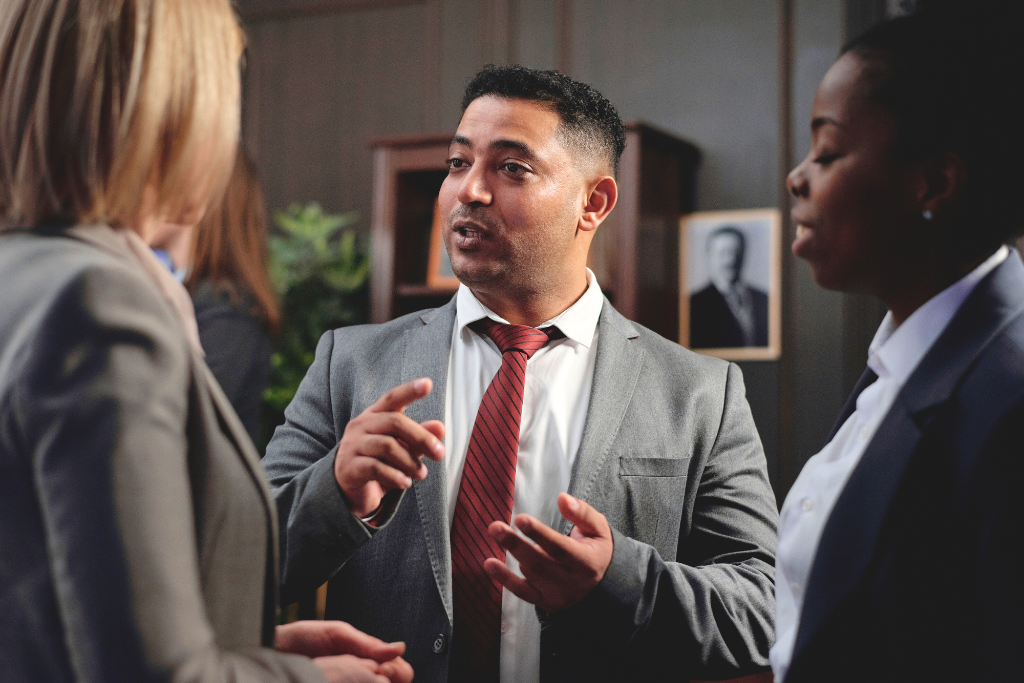
Selling and Buying a House: Should I Sell First?
Finding the best avenue to selling and buying a house can be confusing, join us as we delve into all the ways to sell and buy a house.

Table of Contents
Selling and Buying a House: Should I Sell First?
Selling and buying a house could take anywhere from four to twelve months, and is completely reliant on the demand and supply of the housing market as well as any property chains you may be in.
There is no set way to sell and buy a house, in fact there are so many different avenues, it can be very confusing! The right avenue to follow will simply come down to what suits your needs.
When you buy a house, you will need to pay Capital Gains Tax, and when you sell a house, you will need to pay Stamp duty, on top of the actual house sale and any arrangement fees or estate agent fees so it’s vital you have your finances in order.
There are disadvantages and advantages to selling first, buying first or doing it simultaneously.
If you’re looking for something specific, please check our interactive menu below:
Should You Buy And Sell A House At The Same Time?
Selling and buying a house simultaneously is the route that most homeowners in the UK choose. This is due to the ease and convenience of not having to rent in between houses.
But, buying and selling a home at the same time can be a complex process as it requires careful planning and coordination to ensure a smooth transition between homes.
What Is The Process Of Selling And Buying Simultaneously?
Selling and buying simultaneously, is the most generic way to sell and buy a house.
Before considering simultaneously buying and selling a house, you should assess your financial situation and determine if you have enough funds for a deposit on the new house and if you can qualify for a mortgage while carrying the existing mortgage.
You should always look to evaluate current housing market conditions, as if your local area is a sellers market then you will be able to easily sell your house.
But, if it’s a buyers market then it may take longer to sell your house, but easier to buy your next one — which could end up in you spending more money on utility bills or selling at below market value to a cash buyer or auction.
Due to the risk involved in the selling and buying a house process, you should attempt to coordinate the timing of your transactions to minimise the gap between selling your house and purchasing a new one. This could involve aligning your completion dates and arranging temporary housing if needed.
Advantages Of Selling And Buying A House Simultaneously
When selling and buying a house simultaneously, you will benefit from convenience, where you can avoid the need to find rented accommodation or move twice, which can save time, effort and avoid emotional distress.
Selling and buying simultaneously can help you align your financial transactions by using the proceeds from your current home and apply them directly toward the deposit or completion costs of buying your new home.
Simultaneous purchase and sale allows you time to transition between homes more efficiently.
You should be able to coordinate completion dates which can be beneficial to have specific time constraints or need to synchronise with other life events, such as employment changes or accommodating the start of the new school year.
Selling and buying a house at the same time will also allow you to work with the same conveyancing solicitors at the same time, and minimise the conveyancing costs. If you were to sell your house and buy separately, then there would be a gap between the two processes.
Disadvantages Of Selling And Buying A House Simultaneously
Although coordinating the sale and purchase of two properties can allow you to have a seamless move, if it goes wrong, it could produce time uncertainties.
Which can be challenging to ensure that the completion dates align perfectly and any unexpected delays in one transaction can have a ripple effect especially if there are any property chains.
The simultaneous transaction could create financial strain if you need to cover two mortgages or carry the costs of both properties for an extended period. It’s essential to carefully assess your financial situation.
Should You Sell First And Then Buy?
If you have the time, or accommodation to stay in during the selling and buying a house process, then selling first and buying second may be the best option.
By selling first, you will have the funds readily available to buy your next property and be a more attractive buyer but you will need to rent or stay elsewhere in between houses.
What Is The Process Of Selling First And Buying Second?
When selling first and then buying a house, you should ensure that you have all your finances in order before you start the process of selling your house.
By staying organised, you will be able to organise and port your mortgage quickly, and ultimately make you far more attractive to the property seller. This will help avoid delays and the risk of you being gazundered.
Before you sell your house, you should have already completed your research to find your next property and contacted local estate agents about houses you are interested in.
Once you have sold your house, you can actively view the properties and decide on a property that suits you.
You may need to move to a friend or relative’s property, or rent, while you find your next home, which may come at an additional cost.
Advantages Of Selling First
When selling first and then buying a house, you should ensure that you have all your finances in order before you start the process of selling your house.
By staying organised, you will be able to organise and port your mortgage quickly, and ultimately make you far more attractive to the property seller. This will help avoid delays and the risk of you being gazundered.
Before you sell your house, you should have already completed your research to find your next property and contacted local estate agents about houses you are interested in.
Once you have sold your house, you can actively view the properties and decide on a property that suits you.
You may need to move to a friend or relative’s property, or rent, while you find your next home, which may come at an additional cost.
Disadvantages Of Selling First
Due to market conditions, you may find it hard to find a property to buy after selling yours, which means you will spend more money on finding further accommodation to rent.
There is also the chance that house prices rise dramatically when searching for your next property, which may result in you ending up out of pocket.
If you sell your house before buying a new one, you will need to find temporary housing arrangements which could involve renting a short-term apartment, staying with family or friends.
You will also need to arrange storage for your belongings as well which can be expensive.
Should You Buy First And Then Sell?
If you are selling and buying a house and want to buy first, then you’ll need to be able to fully fund the purchase of the new property before having the funds released from your house sale.
This is one of the most risk heavy ways to sell a house but could have a massive pay-off.
What Is The Process Of Buying First And Then Selling?
When buying a house first and then selling your house, you will need to create a budget for purchasing the new home and ensure that you have the financial means to carry the mortgage of your old house and a new mortgage for the new house.
When buying first and then selling your house you should begin by searching for a new home based on your preferences, needs and budget. You should engage with an estate agent to assist you in finding the right property, schedule viewings and negotiate offers.
Once you’ve identified a property you wish to purchase, work with a mortgage lender to obtain pre-approval or secure financing for your new home.
When you submit an offer to the seller of the new property, you should negotiate the price, and completion dates before the offer has been accepted. Carry out any necessary surveys and work alongside your estate agent and solicitor to complete the necessary paperwork.
Once the purchase of your new home is underway, you can focus on preparing your current home for sale, including staging your home, making necessary repairs, and consider hiring an estate agent to list your property.
Working closely with your estate agent, mortgage lenders and solicitors to coordinate the completion dates for both the purchase of your new home and the sale of your current one. Ensure there is alignment and sufficient time to complete necessary surveys.
Advantages Of Buying First
When selling and buying a house, buying first allows you the luxury of time to carefully consider your options and make a well-informed decision.
You can thoroughly research the market, explore different options and find a home that truly meets your needs and preferences without the pressure of a pending sale.
When you buy a house first, you eliminate the need to rent or arrange temporary housing arrangements. You won’t have to incur the costs of renting which can save you money and make the moving home process more convenient.
Being a non-contingent buyer can provide you with a stronger negotiating position when making an offer on a new home. Sellers may view your offer more favourably since its not contingent on the sale of your current home.
Owning a new home before selling your current property allows you flexibility in the timing of sale. You can choose the optimal time to list and sell your home, potentially allowing you to wait for market conditions to be more favourable.
Disadvantages Of Buying First
Buying a new home before selling your current one means carrying two mortgages simultaneously which can create financial burdens and increase your risk exposure.
You will need to have sufficient financial resources to cover both mortgages, utility bills, insurance and other costs until your current home is sold.
If your current home takes longer to sell than anticipated, it can strain your finances and increase your monthly obligations.
The housing market is subject to fluctuations and can be unpredictable; buying a house first exposes you to the risk of potential market downturns or a decline in home prices. If the value of the property decreases before you sell it, you may face challenges in selling it at the desired price.
Buying a house before selling may limit your budget and purchasing power for the new home. If a significant portion of your funds is tied up in your current home, you may have less money available for a deposit and any necessary renovations or improvements on the new property.
Selling And Buying A House? This Is How You Do It
If you are selling and buying a house, we can help!
We can offer you a full online estate agent service, without all the estate agent fees because its our mission to change the way you sell houses. We will work alongside you every step of the house selling and house buying process, covering everything so you don’t have to.
The days of expensive solicitor fees and legal work are over, and our team of property experts will be there to support you even after the process is complete!
We will market your property on popular property portals such as Rightmove and Zoopla, organise viewings, cover legal fees and negotiate better deals all for free.
If you are ready to sell your home in 28 days, then get in touch today and fill out one of our fast, free, no-obligation forms for your house valuation today.
Selling And Buying A House FAQs
When selling and buying a house, you will find it easier to get approved for a mortgage if you have a property in your sights that you wish to buy. Which is why selling and buying a house simultaneously or buying and then selling may be the least stressful.
If you decide to sell your house and then buy, you will be under stress to get approved for a mortgage while living in temporary housing.
When you are selling and buying a house, you should assess your financial situation, research and find a home, take your time, wait until the market favours your situation and take the big leap!
Selling a house to a first time buyer can have both advantages and disadvantages as they are eager and motivated to get onto the property ladder, they are often less complicated as there are no chains, but the first-time buyers may fail in securing financing due to a limited credit history or the house sale may fall through due to inexperience.







